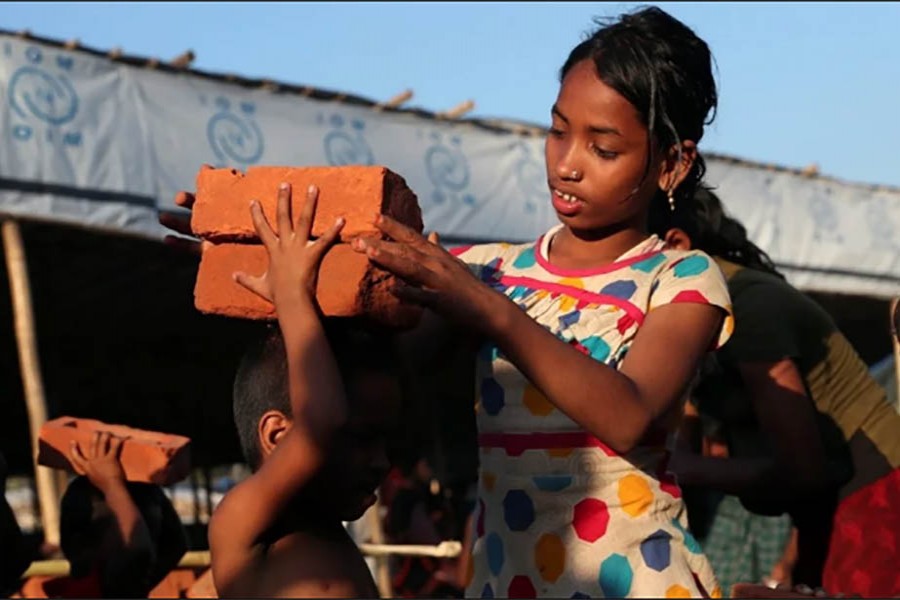
Published :
Updated :

That half a million Bangladeshis are living in a state of slavery, according to an international survey stands in stark contrast to the improving socio-economic indicators the country has been known for, consistently. And, that's where it is concerning and calls for a closer scrutiny of what is being termed 'modern slavery'.
On a comparative scale though , with countries in the region and beyond, we figure better on 2018 Global Slavery Index. The Australian-based human rights group Walk Free Foundation published the index-rather belatedly, we venture to add, benchmarking it to the state of slavery quantified at 40 million as of 2016.
At any rate, Walk Free in tandem with the International Labour Organisation (ILO) has ranked Bangladesh 92nd among 167 nations worldwide. And, among the 28 countries in Asia and the Pacific, Bangladesh is placed 19th.
"Modern slavery', is a first world problem", said Andrew Forrest, a co-founder of Walk Free. He also provides an antidote to the malady, adding, "We are the consumers. We can fix it."
This point is reinforced by the researchers who warned that 'consumers in affluent countries may be purchasing billions of dollars worth of products manufactured with slave labour, including computers, mobile phones and clothing.'
Other countries with the highest rates of slavery were the central African Republic, Afghanistan, South Sudan and Pakistan. Most of these countries are marked by 'conflict, with breakdowns in rule of law, displacement and a lack of physical security,' the report stated.
It is worthwhile to note that the survey found out that "Bangladesh is not in the list of such source countries."
Yet since it has to do with a stamp of slavery, it is shaming for a country to have an imprint of it, degree of 'enslavement' notwithstanding. With the march of time , civilization and liberalism, slavery in any form or shape is an anachronism whose time is over. Because we think, even if all of us may not believe it that we have come a long way since the days of primitive slave trade and indentured labour. However, the prefix 'modern' to slavery given in the report doesn't dignify it; on the contrary, it smacks of wickedness of an inherently exploitative system. In whatever form or shape slavery appears ,it is reprehensible. In our case those who are shackled in a slavery trap is just half a million, so that it can be banished with relative ease compared to some other countries where it is entrenched and pervasive.
We share the concern expressed over the plight of Rohingyas. In resonant endorsement of Bangladesh government's mitigating response to slavery conditions the Rohingyas were thrown into. But unfortunately a 'B rating' has been given 'warning that the Rohingya refugees living in camps in Bangladesh are vulnerable to exploitation.'
We would much rather echo the views expressed in the report to the effect: "Since conclusive evidence began to emerge in August 2017 of fresh campaigns of ethnic cleansing of the Rohingya, the international community has done little to act."
That nub of the issue has to be addressed with an effective international will being galvanised and brought to bear on Myanmar for speedy, safe and dignified repatriation and resettlement of the persecuted Myanmar nationals in their own country.


 For all latest news, follow The Financial Express Google News channel.
For all latest news, follow The Financial Express Google News channel.